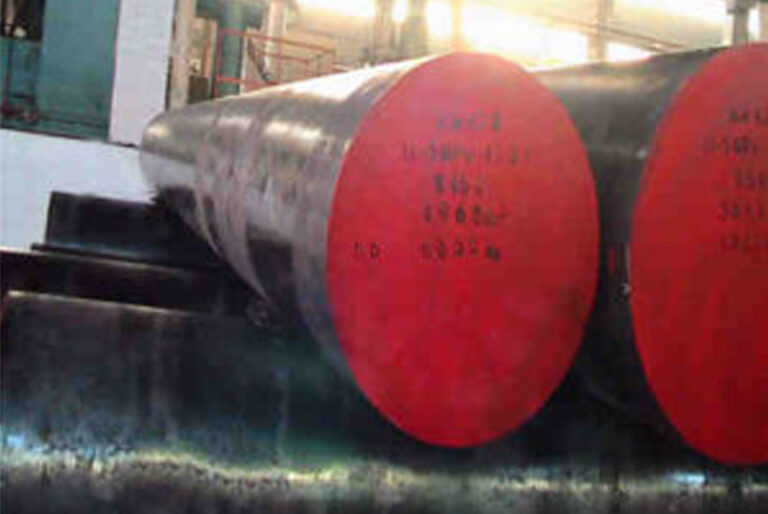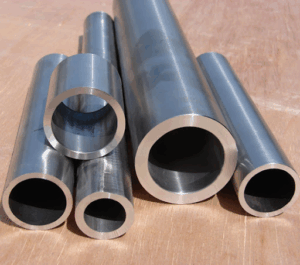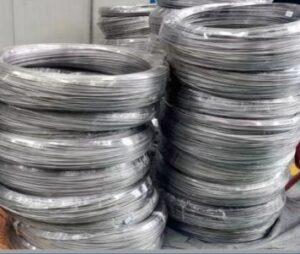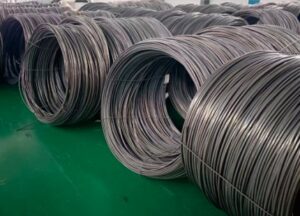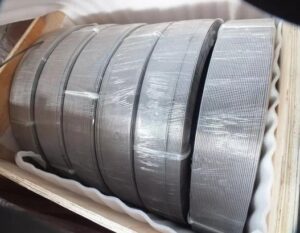Unveiling the Marvels of EN31 Bearing Steel: A Comprehensive Exploration
Introduction
In the realm of bearing materials, certain alloys emerge as pillars of innovation and reliability. Among them stands EN31 Bearing Steel, celebrated for its exceptional properties crucial for engineering applications. Join us as we embark on a journey to uncover the intricacies and advantages of this remarkable material, delving into its composition, properties, applications, suppliers, pricing, and expert insights.
Overview of EN31 Bearing Steel
EN31 Bearing Steel stands out for its excellent combination of hardness, toughness, and wear resistance, making it a versatile choice for various industrial applications.
Chemical Composition
| Element | Percentage |
|---|---|
| Carbon (C) | 0.95-1.10% |
| Manganese (Mn) | 0.95-1.30% |
| Silicon (Si) | 0.15-0.35% |
| Chromium (Cr) | 0.90-1.20% |
| Nickel (Ni) | 1.00-1.60% |
| Phosphorus (P) | 0.025% max |
| Sulfur (S) | 0.025% max |
Mechanical Properties
- Hardness (Rockwell C): 58-62 HRC
- Tensile Strength: 760-1000 MPa
- Yield Strength: 650-800 MPa
- Elongation: 12-18%
Standards
- EN31: European standard for bearing steel
Exploring the Features and Advantages
EN31 Bearing Steel boasts a plethora of features and advantages that make it an ideal choice for engineering applications.
Features
- Excellent wear resistance and toughness
- High compressive strength and edge retention
- Good machinability and dimensional stability
- Suitable for high-speed bearing applications
Advantages
- Widely used in applications requiring high wear resistance, such as bearings, bushings, and rolling elements
- Provides reliable performance in demanding environments, including automotive, aerospace, and industrial machinery
- Offers cost-effectiveness and ease of heat treatment for optimizing properties
Comparison Between EN31 Bearing Steel and Competing Materials
Let’s compare the advantages and disadvantages of EN31 Bearing Steel with a competing material, Alloy X:
| Parameter | EN31 Bearing Steel | Alloy X |
|---|---|---|
| Hardness | Very High | Moderate |
| Toughness | High | Low |
| Machinability | Good | Poor |
| Cost | Moderate | Higher |
Applications and Uses
From automotive to industrial machinery, EN31 Bearing Steel finds widespread application in various industries.
| Industry | Applications |
|---|---|
| Automotive | Bearings, bushings, shafts |
| Aerospace | Rolling elements, engine components |
| Industrial Machinery | Gears, spindles, machine tool components |
Navigating Suppliers and Pricing
Sourcing EN31 Bearing Steel requires careful consideration of reliable suppliers offering quality products at competitive prices.
| Supplier | Price Range (per unit) | Description/Notes |
|---|---|---|
| Timken Company | $10 – $20 per kilogram | Leading global supplier of bearing steels |
| Schaeffler Group | $12 – $25 per kilogram | Specializes in high-performance bearing materials |
| NSK Corporation | $15 – $30 per kilogram | Offers a wide range of bearing steel products |
FAQs about EN31 Bearing Steel
Q: Can EN31 Bearing Steel be heat treated?
A: Yes, it can be heat treated to achieve desired mechanical properties, such as increased hardness and wear resistance.
Q: What are the common applications of EN31 Bearing Steel?
A: Common applications include bearings, bushings, shafts, and rolling elements in automotive, aerospace, and industrial machinery.
Q: Where can I buy EN31 Bearing Steel?
A: You can source EN31 Bearing Steel from reputable suppliers such as Timken Company, Schaeffler Group, and NSK Corporation.
Q: What specifications does EN31 Bearing Steel conform to?
A: This bearing steel conforms to standards such as EN31, ensuring compliance with stringent quality requirements.

